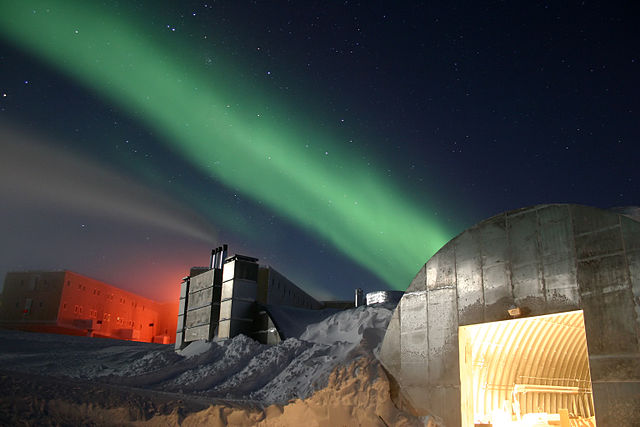 |
This is a file from the Wikimedia Commons. Information from its description page there is shown below.
Commons is a freely licensed media file repository. You can help.
|
 |
This is a featured picture, which means that members of the community have identified it as one of the finest images on the English Wikipedia, adding significantly to its accompanying article. If you have a different image of similar quality, be sure to upload it using the proper free license tag, add it to a relevant article, and nominate it. |
 |
This image was selected as picture of the day on the English Wikipedia for June 9, 2006. |
 |
|
 
|
This file was a candidate in Picture of the Year 2008.
This is a featured picture on Wikimedia Commons ( Featured pictures) and is considered one of the finest images.
If you have an image of similar quality that can be published under a suitable copyright license, be sure to upload it, tag it, and nominate it.
|
|
|
Summary
 |
This is a retouched picture, which means that it has been digitally altered from its original version. Modifications: This is a noise reduction and hot-pixel removal edit by Diliff of the original image Image:Amundsen-Scott marsstation ray h.jpg under consideration for FPC..
|
| Description |
English: A full moon and 25 second exposure allowed sufficient light into this photo taken at Amundsen-Scott South Pole Station during the long Antarctic night. The new station can be seen at far left, power plant in the centre and the old mechanic's garage in the lower right. Red lights are used outside during the winter darkness as their spectrum does not pollute the sky, allowing scientists to conduct astrophysical studies without artificial light interference. There is a background of green light. This is the Aurora Australis, which dances thorugh the sky virtually all the time during the long Antarctic night (winter).The photo's surreal appearance makes the station look like a futuristic Mars Station.
Français : Vue de la station américaine Amundsen-Scott au pôle sud, éclairée par la pleine lune, durant la longue nuit polaire. La nouvelle station est visible tout à gauche, la centrale électrique au centre et l'ancien atelier de mécanique en bas à droite. Durant la nuit polaire, seule la lumière rouge est utilisée pour limiter la pollution lumineuse et ne pas perturber les expériences d'astrophysique menées dans la base. La lumière verte est due aux aurores australes qui sont quasi-permanentes durant la nuit polaire. L'apparence surréaliste de la photo fait penser à une base futuriste sur Mars.
Česky: Polární stanice Amundsen-Scott během během polární noci. Uprostřed je elektrárna, vpravo dole garáž a dílna pro mechaniky. Na snímku je patrná polární záře.
עברית: ירח מלא וחשיפה של 25 שניות אפשרו צילום תמונה זו בתחנה האנטארקטית אמונדסן-סקוט בעת הלילה האנטארקטי. מבנה התחנה החדש נראה משמאל, תחנת הכוח במרכז והמוסך הישן בצד ימין למטה. התאורה האדומה נועדה שלא לגרום לזיהום אור בעת חשכת החורף, כך שהמדענים בתחנה יכולים להמשיך במחקרים אסטרופיזיים מבלי שתאורת הסביבה תפריע לניהולם. האור הירקרק בשמיים הוא הזוהר הדרומי.
|
| Date |
July 2005 |
| Source |
|
| Author |
Photo by Chris Danals, National Science Foundation |
|
Camera location
|
90° 0′ 0.00″ S, 139° 16′ 0.00″ W
|
This and other images at their locations on: Google Maps - Google Earth - OpenStreetMap |
( Info)-90;-139.26666666667 |
Licensing
| Public domainPublic domainfalsefalse |
 |
This image is a work of a National Science Foundation employee, taken or made as part of that person's official duties. As a work of the U.S. federal government, the image is in the public domain. |
|
File usage
The following pages on Schools Wikipedia link to this image (list may be incomplete):
This file contains additional information, probably added from the digital camera or scanner used to create or digitize it. If the file has been modified from its original state, some details may not fully reflect the modified file.
Through Schools Wikipedia, SOS Children has brought learning to children around the world. SOS Children's Villages is famous for the love and shelter it brings to lone children, but we also support families in the areas around our Children's Villages, helping those who need us the most. Want to learn more? Go to http://www.soschildrensvillages.org.uk/sponsor-a-child




